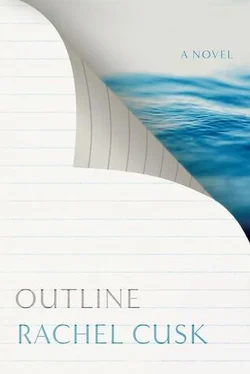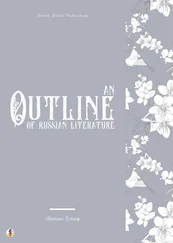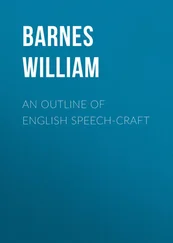My phone sounded again. It was a text from my neighbour on last night’s plane. He was thinking of taking his boat out, he said, and wondered whether I’d like to join him for a swim. He could come and collect me at my apartment in an hour or so, and drive me back there afterwards. I thought about it while Ryan was talking. What I miss, Ryan said, is the discipline itself. In a way I don’t care what I write — I just want that feeling of being in sync again, body and mind, do you know what I mean? As he spoke I saw the imaginary staircase rising in front of him once more, stretching out of sight; and him climbing it, with a book suspended tantalisingly ahead of him. The perimeter of shade had receded and the glare of the street advanced, so that we now sat almost at the interface of the two. The commotion of heat was just at my back; I edged my chair in towards the table. When you’re in that place you make time for it, don’t you, Ryan said, the way people make time to have affairs. I mean, you never hear someone say they wanted to have an affair but they couldn’t find the time, do you? No matter how busy you are, no matter how many kids and commitments you have, if there’s passion you find the time. A couple of years ago they gave me six months’ sabbatical, six whole months just for writing, and you know what? I put on ten pounds and spent most of the time wheeling the baby around the park. I didn’t produce a single page. That’s writing for you: when you make space for passion, it doesn’t turn up. In the end I was desperate to get back to the job, just for a break from all the domestic business. But I learned a lesson there, that’s for sure.
I looked at my watch: it was a fifteen-minute walk back to the apartment and I needed to go. I thought about what I ought to take for a boat trip, how hot or cold it would be and whether I should bring a book to read. Ryan was watching the waitress moving in and out of the shadows, proud and erect, the tresses of her hair hanging perfectly still. I put my things in my bag and moved to the edge of my seat, which seemed to catch his attention. He turned his head to me. What about yourself, he said, are you working on something?
The apartment belonged to a woman called Clelia, who was out of Athens for the summer. It stood in a narrow street like a shady chasm, with the buildings rising to either side. On the corner opposite the entrance to Clelia’s building was a café with a large awning and tables underneath, where there were always a few people sitting. The café had a long side window giving on to the narrow pavement, which was entirely obscured by a photograph of more people sitting outside at tables, so that a very convincing optical illusion was created. There was a woman with her head thrown back, laughing, as she raised her coffee cup to her lipsticked mouth, and a man leaning towards her across the table, tanned and handsome, his fingers resting lightly on her wrist, wearing the abashed smile of someone who has just said something amusing. This photograph was the first thing you saw when you came out of Clelia’s building. The people in it were slightly larger than life-size, and always, for a moment, exiting the apartment, they seemed terrifyingly real. The sight of them momentarily overpowered one’s own sense of reality, so that for a few disturbing seconds you believed that people were bigger and happier and more beautiful than you remembered them to be.
Clelia’s apartment was on the top floor of the building and was reached by a curving marble staircase that passed the doors to the apartments on the other floors one by one. Three flights of stairs had to be climbed and three doors passed before Clelia’s was reached. At the bottom the hallway was darker and cooler than the street, but because of the windows at the back of the upper storeys, as it rose it became lighter and warmer. Outside Clelia’s door, just beneath the roof, the heat — with the strain of the climb up — was faintly stifling. Yet there was also the feeling of having accessed a place of privacy, because the marble staircase ended here and there was nowhere further to go. On the landing outside her door Clelia had placed a large sculpture made of driftwood, abstract in shape, and the presence of this object — where the landings on the lower floors were completely bare — confirmed that no one ever came up here who wasn’t either Clelia or someone she knew. As well as the sculpture there was a cactus-like plant in a red earthenware pot, and a decoration — a charm made of woven strands of coloured material — hung from the pewter door knocker.
Clelia was a writer, apparently, and had offered her flat to the summer school for the use of the visiting writers, even though they were complete strangers to her. And in fact it was obvious, from certain features in her apartment, that she regarded writing as a profession worthy of the greatest trust and respect. To the right of the fireplace was a large opening through which Clelia’s study could be accessed, a square secluded room whose large cherry-wood desk and leather swivel chair faced away from the single window. This room contained, as well as many books, several painted wooden models of boats, which had been mounted to the walls. They were very intricately and beautifully made, down to the miniature coils of rope and tiny brass instruments on their sanded decks, and the larger ones had white sails arranged in curving attitudes of such tension and complexity that it did indeed seem as though the wind was blowing in them. When you looked more closely, you saw that the sails were attached to countless tiny cords, so fine as to make them almost invisible, which had fixed them in these shapes. It required only a couple of steps to move from the impression of wind in the sails to the sight of the mesh of fine cords, a metaphor I felt sure Clelia had intended to illustrate the relationship between illusion and reality, though she did not perhaps expect her guests to go one step further, as I did, and reach out a hand to touch the white cloth, which was not cloth at all but paper, unexpectedly dry and brittle.
Clelia’s kitchen was sufficiently functional to give the clear message that she didn’t spend much time there: one of the cupboards was entirely filled with esoteric whiskies, another with relatively useless things — a fondue set, a fish kettle, a ravioli press — that were still in their boxes, and one or two were completely empty. If you left so much as a crumb on the counter-top, columns of ants would spring out from all directions and descend on it as though starved. The view from the kitchen window was of the backs of other buildings with their pipework and washing lines. The room itself was quite small and dark. Yet there was nothing you really needed that wasn’t there.
In the sitting room Clelia’s formidable collection of recordings of classical music could be found. Her hi-fi system consisted of a number of inscrutable black boxes, whose blankness and slenderness left one unprepared for the enormity of the sound they made. Clelia favoured symphonies: in fact, she possessed the complete symphonic works of all the major composers. There was a marked prejudice against compositions that glorified the solo voice or instrument, very little piano music and virtually no opera, with the exception of Janáček, of whose complete operatic œuvre Clelia had a boxed set. I wasn’t sure I would choose to sit through symphony after symphony any more than I would spend the afternoon reading the Encyclopaedia Britannica, and it occurred to me that in Clelia’s mind they perhaps represented the same thing, a sort of objectivity that arose when the focus became the sum of human parts and the individual was blotted out. It was, perhaps, a form of discipline, almost of asceticism, a temporary banishing of the self and its utterances — in any case, Clelia’s symphonies in their serried ranks predominated. When you put one on, the apartment instantly seemed to grow ten times its actual size and to be accommodating a full orchestral assembly, brass, strings and all.
Читать дальше












